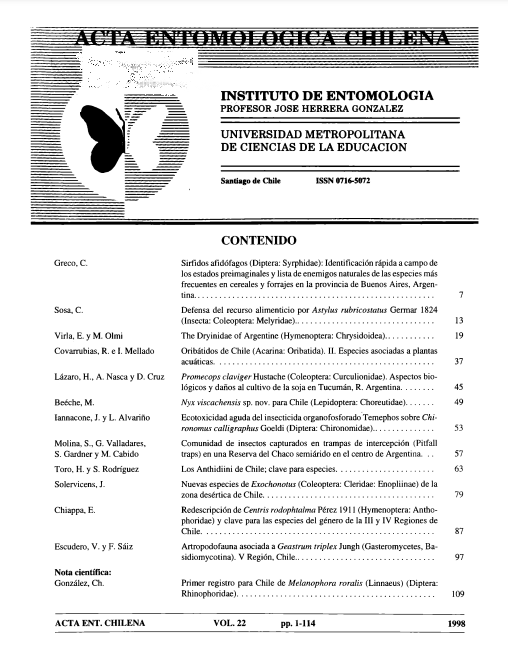Conteúdo do artigo principal
jul 11, 2022
Resumo
The Oribatid mite’s species living on aquatic or wet plants were studied. Fifteen localities were sampled,
from the II to the X Regions of Chile, that is, from the northern desertic ecosystems, to the Southern
temperature región.
A surprisingly poor number of species was found, they were mostly omnipresent despite the extended
sampled zones. While different species with a high diversity inhabit the terrestrial ecosystems (desert, calid
steppes, bushes, sclerophilous forest, temperature forest, coid altitudinal steppes), the species found along
the different water systems studied were a monotonous group, all present in slow water currents and only on
the vegetation near the borders.
Ten species of Oribatida were found. One is found only in properly aquatic plants; three others were found
either on aquatic plants or in wet mosses standing on soils or rocks touching the water; others six were found
only in wet plants or mosses. The geographic distribution is given for each species.
The densities of the four hydrophilous species show an extreme agregation, with few samples showing
very high densities and many samples showing very low ones, being the common case to found 0, 1 or 2
individuáis by sample. Average densities, their standard deviations, the mode and the sample frequency are
given for each species.
Hydrozetes lemnae was reared in the laboratory and they didn’t show the phenomenon of “aquatic
levitation”; they remain in decomposing plants, eating them and reproducing there parthenogenetically; only
females were then found.


